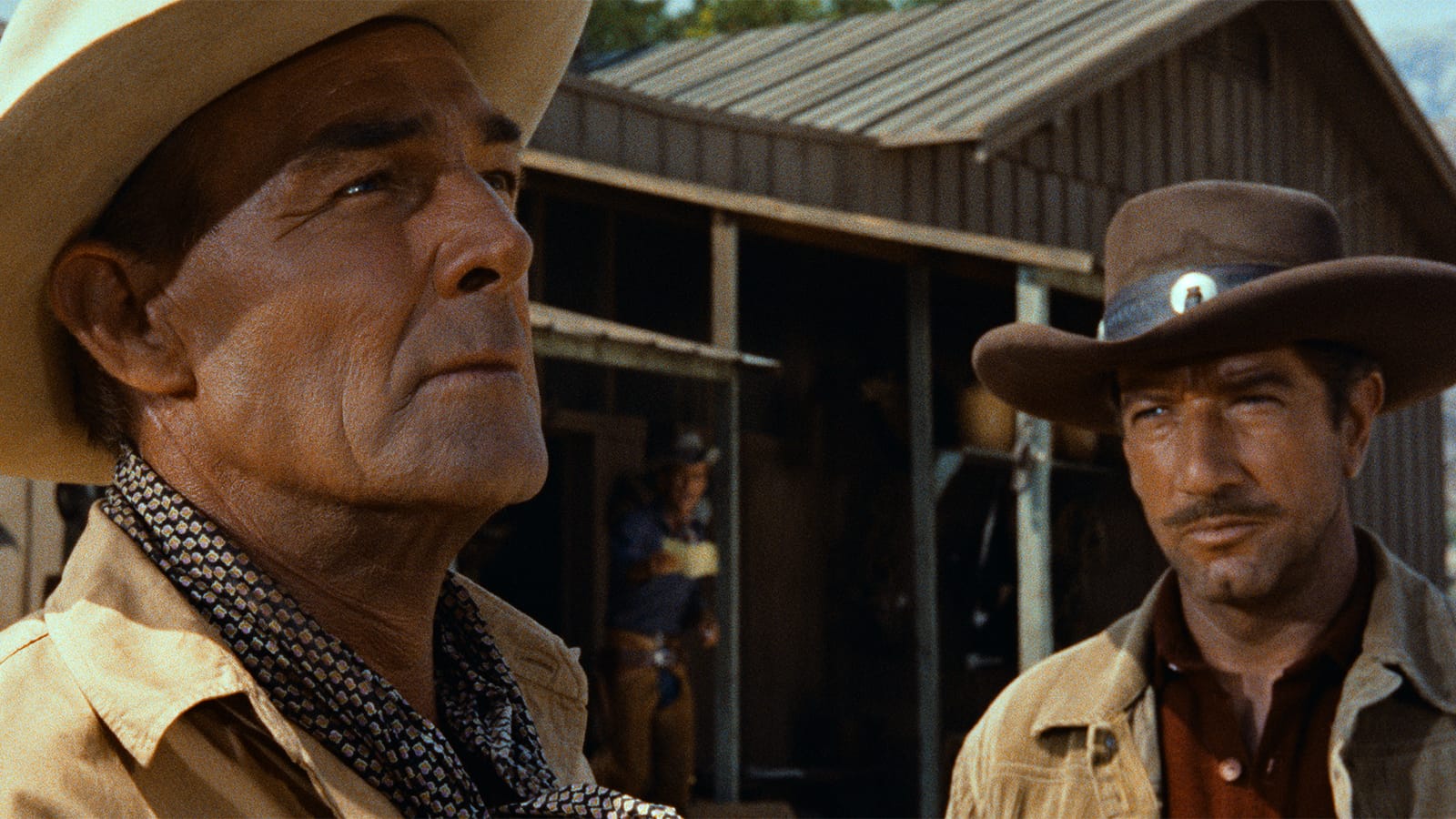Blu-Ray Review | The Ranown Westerns
Throughout the latter part of the 1950s and into the early 1960s, director Budd Boetticher teamed up with star Randolph Scott to make a series of westerns that became known colloquially as the Ranown Westerns; so named because of the production company co-owned by Scott with Harry Joe Brown). These low budget B-pictures seemed to exist in a world of their own, at once presaging revisionism at the hands of Leone and Peckinpah while embracing the more traditional structure of Ford and Hawkes. Taken collectively they are a remarkable achievement that seem somehow weary with the often black and white morality that often characterized the genre. No white hats and black hats here - Boetticher's world is far more distinguished by shades of gray. While each film stars Randolph Scott, he never plays the same character twice. Whether he's a righteous man caught in the middle of a corrupt town government's attempt to railroad perceived rivals as in Buchanan Rides Alone, or a morally questionable bounty hunter in Ride Lonesome, or a man on a misguided quest for revenge in Decision at Sundown, Boetticher and Scott refuse to repeat themselves, examining ideas of masculinity and frontier justice from multiple, increasingly fascinating angles.
Take, for instance, Decision at Sundown, which starts with that age old cliche of two strangers riding into a town, in this case, a town called Sundown. They're here to meet up with a wealthy man named Tate Kimbrough (John Carroll) on his wedding day. Turns out one of the men (Scott) blames Kimbrough for his wife's suicide and has come to seek revenge, confronting him at the altar and sending the town into a day-long standoff that reveals long simmering tensions between the townsfolk and the iron grip Kimbrough's money has given him over their lives.
Like many of Boetticher's westerns, Decision at Sundown is full of angst and moral complexity. Scott is on a quest for revenge that will lead him to unexpected places - but he's essentially a cuckold with a chip on his shoulder, looking to punish a man over a woman who was never truly his to begin with. That rage percolating under the surface of Scott's rugged visage is what makes him such a fascinating performer, and he's at his best here. The ending feels somewhat weak given the complexities of the drama that proceeded it, but the way Boetticher undercuts western archetypes is endlessly fascinating; a flawed hero, a sympathetic villain, a climax that puts them at adds and helps them see each other as the men they truly are. It's a crackerjack revenge thriller that feels like a revisionist western before revisionism was en vogue.
In their penultimate collaboration, Ride Lonesome stars Scott as a bounty hunter who's escorting a wanted murderer to Santa Cruz to face hanging. But after rescuing a widow stranded in a remote outpost from an Indian attack, he is forced to team up with a ragtag band that will put both his mission and his life in jeopardy, as they are pursued by their quarry's vengeful brother (Lee van Cleef) and his gang.
Ride Lonesome deals frankly with its themes of mortality and frontier justice, and clocking in at a mere 73 minutes it features Boetticher's trademark no-frills direction and stripped down action, focusing on character interactions and the toll of taking a human life. Not are thematically dense perhaps as 7 Men from Now, it nevertheless features some of Boetticher's most indelible images and haunting moments; a grim, stripped down morality play made with a breathtaking command of the medium.
It is a shame that Criterion wasn't able to include 7 Men from Now in their box set of Boetticher and Scott's collaborations, because for my money that remains their greatest film together. However, having these five films together is something of a godsend for fans of Boetticher, whose works have long languished on sub-par, cheapie DVDs. And while that glaring omission means that the set isn't exactly comprehensive, it is nevertheless an impressive appreciation of their work and what they meant to the western genre and to cinema as a whole. Boetticher's penchant for crafting smart meditations on deeper themes in the midst of b-movie trappings recalls the work of Val Lewton, whose low budget horror pictures of the 1940s took lurid, studio-mandated titles and turned them into surprisingly psychological works of art. Few other filmmakers were doing what Boetticher was doing with the western during this period, and thanks to Criterion's loaded new set, these films are at last being given the life and legacy they deserve.
The Ranown Westerns is now available on Blu-Ray and DVD from The Criterion Collection!






Comments